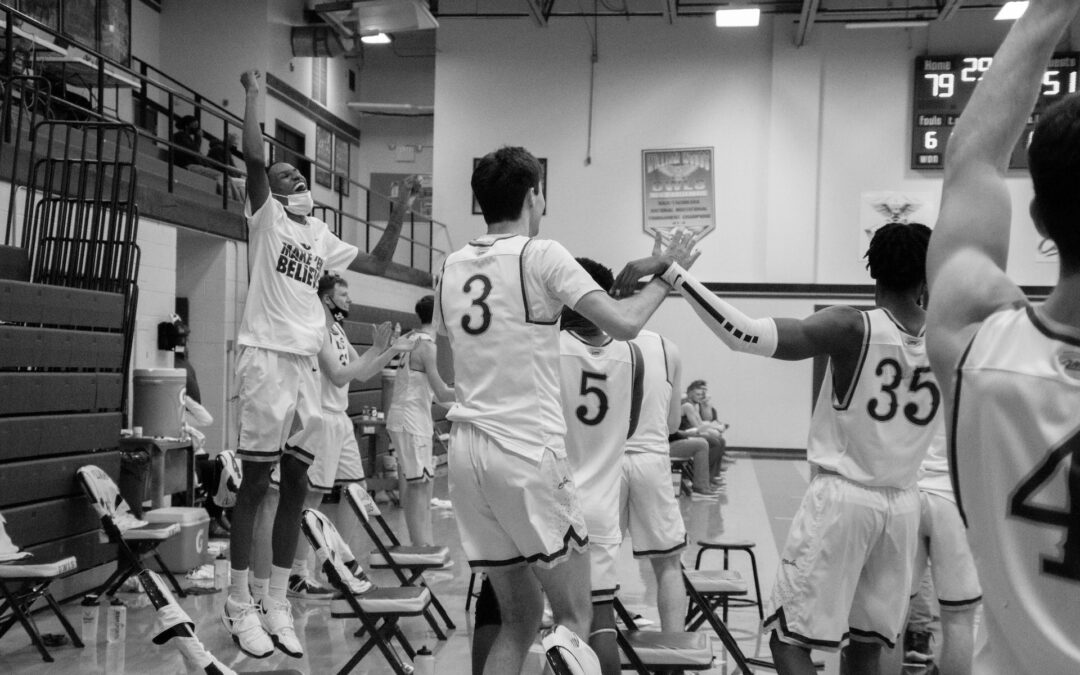Like many of you, March Madness is one of my most favorite times of the year. Conference tournaments, selection shows, the men’s NCAA Tournament, the women’s NCAA Tournament, and the NIT all provide enough coverage to keep even the most dedicated basketball junkie in hoops heaven. But with all of those squads in the mix, it can be hard to tell the difference between them. Thing is, there really are only four types of basketball teams.
One of the things that I enjoy most is the opportunity to learn more about the inner workings of some of the most successful programs in the country. After all, every team practices, every player lift weights, and every coach prepares as thoroughly as possible.
Does this mean that talent is the only thing that separates one team from the next and the ultimate champion from the team on the bubble? Fortunately, all of the media outlets produce enough interviews, “all access” segments, and human interest stories that we fell like we are literally behind the scenes. The extensive media coverage often gives us an insider’s glimpse as to what exactly separates the good from the great.
If you watch closely you will notice that generally speaking the majority of teams fall into one of four general categories:
Basketball Teams: Type 1 – Team in Name Only
These basketball teams are not really teams at all but instead are a group of individuals all wearing similar uniforms. The coach may have a plan but the players don’t buy in and often end up forming their own sub groups (cliques). While each of the groups is usually friendly with the other groups they never actually get on the same page either on or off the court.
Teams like this will never rise above their own individual talents. They can usually beat the really “bad” teams but struggle against teams with an equal or greater amount of individual talent. A team that lacks individual superstars but plays well together can beat teams like this.
Basketball Teams: Type 2 – The “Good”
Good basketball teams have a small core (2-3 players) of players that have bought in to the coach’s vision and are able to have at least some positive influence on their teammates. These players usually set a good example both in word and action but the team’s success often lies in their ability to motivate their teammates. Often a couple other teammates will temporarily buy in but will eventually return to their old ways, unable to sustain the mental and physical effort necessary to be championship level players.
Teams like this will usually beat the bad teams and will occasionally get a victory now and then over another good team depending on how many other players have joined the core group at that particular time. Of course, they often lose to other good teams too.
Basketball Teams: Type 3 – The “Great”
This is where it really gets fun for coaches and players alike. Everybody, from the best player all the way down to the least skilled player, is on the same page in terms of work ethic, commitment, and attitude. Everybody accepts and fulfills their roles to the very best of their ability. And is genuinely happy when a teammate plays well. No one really cares who gets the credit as long as the team is successful.
Great teams like this will often beat opponents with superior talent. Their focus, trust, and teamwork will make up for any deficiencies in talent. As a result their win-loss record is always outstanding because they win several games a year that could easily go either way. The 2012 University of Louisville men’s team is a recent example of a great team. They didn’t have one single player make first, second, or third team all-conference. Yet, they won the Big East Tournament and made it all the way to the Final Four.
Basketball Teams: Type 4 – The “Legacy”
What the difference between a great team and a legacy team? Sometimes it’s talent. When vastly superior talent is combined with the commitment, focus, and work ethic found in great teams then the opportunity exists to be involved in something very special.
But more often than not, legacy teams are created and developed off the court. Teams like this believe in their established core values and culture so much that it becomes an integral part of their individual and collective personalities. Team members look after each other off the court. They look for ways to help each other off the court. They refuse to do anything off the court that might hurt the team on the court. Legacy teams are more like families than basketball teams!
Legacy teams don’t come along often enough. Mostly because of all the different personalities, backgrounds and agendas of team members. If you are lucky enough to be involved with such a team, whether you are a player or a coach or a fan, take advantage of it and enjoy every second.
Related: 5 Ways for Your Team to Think Like Champions
Resources:
 Practice Planner Live
Practice Planner Live
Failing to prepare is preparing to fail! Quickly create, organize, & manage your practice plans all in one place to help win games.
Create detailed practice plans! Add drills, notes, diagrams, videos, & groups with an easy-to-use interface to create a detailed practice plan in no time!
Take a risk free,14-day trial at PracticePlannerLive.com today! No credit card required!
If you found this useful, don’t forget to check out additional blog posts at TeachHoops.com. Also, check out TeachHoops on Facebook, Twitter, Instagram and YouTube.



